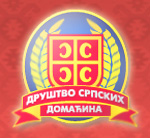Russia and China firmly in the USA's sights
| Activities - Comments |
Wolfgang Effenberger
On Monday, March 28, 2022, the Pentagon submitted a $773 billion budget request for fiscal year 2023, asking Congress for a significant increase in spending to build new weapons "to curb the emerging Chinese military, check Russia's aggression in Europe, and boost pay for troops."(1)
"I am calling for one of the largest investments in our national security in history," U.S. President Biden said of the budget request, "with the funding necessary to ensure that our military remains the best-prepared, best-trained, and best-equipped military in the world"; he noted that the funds were being requested to " forcefully respond to [Russian President Vladimir] Putin's aggression against Ukraine."(2) However, the request was largely completed before Putin ordered his troops into Ukraine on February 24.
For U.S. Senate Armed Services Committee Chairman Senator Jack Reed, D-(Rhode Island), this budget is only a "starting point." While it would recognize "China and Russia as the most important strategic competitors to our military," he said, it must still take into account the broader needs of the U.S. military. Reed called on Congress to "make thoughtful decisions about how we equip and transform our national instruments of power. Now that President Biden has submitted his budget request, the committee can begin crafting a [National Defense Authorization Act] that meets America's needs now and in the future."(3)
Among the most pressing needs of the United States since the end of World War II has been the dismantling of the Soviet Union. To this end, the DROPSHOT war plan went into effect on December 19, 1949, a few months after NATO was formed. It was to be triggered after the economic reconstruction of Western Europe (Marshall Plan) and the establishment of the Bundeswehr in 1957.
The U.S. responded to the collapse of the Soviet Union in 1991 with dynamic imperial geopolitics that quickly filled the resulting power vacuum - a policy that virtuously uses the connections between geography and space for its strategic visions in foreign policy.
It is not currently about Putin Biden or even Selensky, it is about a gigantic power game that has been set in motion at the latest since the collapse of the Soviet Union: Five days before the bombing of Yugoslavia began, the U.S. House of Representatives had passed the "Silk Road Strategy Act." It stated:
"The five former Soviet republics that make up Central Asia - Kazakhstan, Kyrgyzstan, Tajikistan, Turkmenistan, and Uzbekistan - are eager to establish relations with the United States. Kazakhstan and Turkmenistan have large oil and gas reserves around the Caspian Sea that they are desperate to exploit."(4)
The template for this law was Polish-American political scientist and geostrategist Zbigniew Brzeziński's 1997 book, The Grand Chessboard(5). It formed the blueprint for U.S. global policy in recent decades, the goal of which is to bring both China and Russia under its control. Pentagon planners see both a strong Russia and a powerful China as threats.(6) And Ukraine is a pivotal point for U.S. long-term strategists in the struggle for world power. According to Brzeziński, Ukraine's very existence as an independent state contributes to Russia's transformation: "Without Ukraine, Russia is no longer a Eurasian empire."(7)
His prediction as early as 1997 was that "sometime between 2005 and 2010, Ukraine should be ready for serious negotiations with both the EU and NATO, especially if in the meantime it has made significant progress in its domestic reforms and has more clearly identified itself as a Central European state."(8) By integrating Ukraine into the EU and NATO, Brzeziński wanted to put Russia in its place.
Since the Taiwan crisis in 1995/96, the U.S. has (once again) seen China as a potential military adversary and has aligned its strategic plans accordingly. In the South China Sea, the American claim to free access to the world's oceans continues to collide with Chinese efforts to establish a security zone there. "The geopolitical conflict over the South China Sea is also intertwined with the nuclear dimension. China appears to be developing this sea in the sense of a protected bastion for nuclear-armed submarines with which it wants to ensure second-strike capability against the United States."(9)
Already in his first year in office - on November 13, 2009 - U.S. President Barack Obama referred to himself as the "first Pacific president" of the U.S. in a keynote address to his Pacific ally Tokyo, because the "history of America and the Asia-Pacific region have never been more closely connected."(10) At the same time, he announced greater engagement with Asian countries and emphasized U.S. leadership in the world. In early October 2011, then-U.S. Secretary of State Hillary Clinton underscored her "first Pacific" president's new foreign policy as a "swing to Asia": "The future of policy will be decided in Asia, not Afghanistan or Iraq, and the United States will be at the center of the action."(11) Thus, the shift of the U.S. military's operational focus from the greater Middle East to Asia would be inevitable. And on February 9, 2012, Admiral Samuel Locklear spoke plainly to the U.S. Senate Defense Committee on the occasion of his nomination to head U.S. Pacific Command: "We are a major power in Asia. The Chinese and the other countries in the region need to understand that the United States is prepared to defend their national interests there."(12)
In Ukraine, after the initial successes of the 2010 "Orange Revolution" were challenged with the election of Viktor Yanukovych, Western-directed unrest erupted in late 2013, eventually leading to the president's flight to Russia on February 21, 2014. This brought the coup to a "successful" conclusion. The U.S. sponsored the coup to the tune of $5 billion. In parallel, George Soros also supported the Maidan revolution.(13) In current reporting, however, Putin alone was and is seen as responsible for the Ukrainian tragedy.
One day after the referendum in Crimea - here the Crimean population had voted with an overwhelming majority for annexation to the Russian Federation - the NATO summit began in Wales (March 17-19, 2014). The subsequently published conference report outlining the new strategic concepts(14) states that strategic communications and outreach are critical "if the Alliance is to be properly positioned for the challenges and shocks that the 21st century beyond 2014 will undoubtedly bring."(15) The summit is also a time when the Alliance must be prepared for the challenges and shocks that the 21st century will undoubtedly bring.
In this regard, the Ukraine/Crimea crisis must be seen in a historical context: "This is not the beginning of a new Cold War, unless Putin overreaches and invades all of Ukraine. However, the European security and defense architecture must be strengthened and made fit for the challenges of the 21st century."(16)
The report's authors logically recognized that the Syria and Ukraine crises highlight the danger of "multiple threats merging as great powers compete for influence which prevents solutions to humanitarian tragedies."(17) China's emergence and growing tensions in the Asia-Pacific region would also highlight "the extent to which the Alliance must prepare for challenges across the spectrum of conflict and around the world." The text then definitely states, "NATO is the ultima ratio for safeguarding freedom and security."(18)
In early October 2014, at the Association of the United States Army (AUSA) conference, senior officers and representatives of the U.S. Department of Defense revealed the vision of future armed conflicts. Amidst weapons industry lobbyists whose companies presented the latest weapons systems, the new TRADOC document 525-3-1 "Win in an Complex World 2020-2040"(19) was unveiled. The United States Army "Training and Doctrine Command" (TRADOC) is one of three Army-level commands, and thus one of the most important commands in the U.S. Armed Forces.
This event prompted Bill van Auken and David North to write a blistering article on wsws.org, the mouthpiece of the "International Committee of the Fourth International" (ICVI): "U.S. Army Drafts Blueprint for Third World War."(20) Both authors infer extremely ominous implications from the text of the document, as the first priority for the armed forces was to reduce the threat from Russia and China, second was the threat from North Korea and Iran, and only third was terrorism. Successfully, the U.S. military under its first "Pacific" president shifted its capabilities massively toward Asia.
On December 4, 2014, the U.S. Congress overwhelmingly (only 10 votes against) passed H. Res. 758. On the same day, long-time Congressman Ron Paul commented on it on his website with the article "Reckless Congress 'Declares War' on Russia"(21), saying:
"Today in the U.S. House of Representatives, in my opinion, one of the most evil pieces of legislation was passed."
Ron Paul sees this 16-page bill as pure war propaganda that should make even neoconservatives blush with shame. Resolution 758 reminds him of 1998, when he argued vehemently against passage of the Iraq Liberation Act. At that time, he had stated that this law would lead to war. "I voted against the bill at that time" said Paul, "not because I was an admirer of Saddam Hussein. Nor am I an admirer of Vladimir Putin or any other foreign leader. What made me vote against the bill at the time was a personal belief that another U.S. war against Iraq would not solve the underlying problems. Rather, it became apparent even then that such a war would tend to make things worse in the region. We all know today what happened in the aftermath"(22). This is one of the reasons "why I can hardly believe that this development is now repeating itself and that those responsible are ruthlessly imposing their will. And this time it is about much more: namely provoking a war against Russia, which could end in a total destruction of the world we know!"(23)
Former Reagan Administration Deputy Treasury Secretary Paul Craig Roberts saw the resolution against Russia as a pack of lies(24), and Canadian economist Michel Chossudovsky worried about global security. For him, the House of Representatives had effectively given the U.S. president and commander-in-chief of the armed forces a "green light" to enter into a process of military confrontation with Russia without further congressional approval.(25) "This historic vote," Chossudovsky said, "potentially affecting the lives of hundreds of millions of people around the world, has been virtually blanketed in the media - and this state of affairs continues."(26)
The speed with which the resolution was passed is unusual in the history of the U.S. legislative process. In just 16 days, H. Res.758 had been debated in the Foreign Affairs Committee and then sent back to the House of Representatives for debate and passage.
This legislation can be activated at any time by the sitting U.S. President.
On March 30, the Austrian "Standard" published an interview with Gerard Toal, representative of "Critical Geopolitics" and professor of International Relations at Virginia Tech in the United States. He sees the Russian invasion of Ukraine as a string of hubris, misinformation and misinterpretation. From a military standpoint, this view seems accurate. But Russia's military operation is more likely to be politically motivated. Consequently, Toal recognizes that the Vladimir Putin of today has been honed by interactions with the West over the past 20 years: Putin "is angry, he drew red lines that were neither accepted nor respected. He operates out of a massive distrust of the West. He believes they always want to humiliate and undermine Russia. For Putin, the autocrat, Western ideology is liberal imperialist warfare along with constant expansion of democratic institutions, constant expansion of a kind of capitalist economy and politics. For Putin, this presents itself as a kind of permanent revolution against him and his worldview - the color revolutions, for example, which were supposed to trigger a kind of domino effect. This is his revanchism."(27)
Toal's statement on Putin's operating may contain some kernels of truth, but it is ultimately too superficial and not conducive to finding a peace solution for Europe.
What will happen next?
The fighting in Ukraine could drag on for a long time, while Selensky and parts of the Polish and American elite want NATO to be involved in this war. A cause will be quick to construct (see Tonkin 1964 - Meddox, Iraq 1991- incubators. Iraq 2003 WMD etc).
And that could happen now - even with the threat of nuclear war.
Today's winners are again in the US. Money flows to the drug companies, to the defense companies, to the oil and gas companies. Non-Americans are once again bleeding to death for interests across the Atlantic.
Regardless of the war propaganda, however, the suffering of the people maltreated in this fratricidal war must now urgently be ended and a lasting peace solution set in motion.
Notes
1) https://www.stripes.com/theaters/us/2022-03-28/defense-department-budget-troops-pay-raises-china-russia-5505695.html?utm_source=Stars+and+Stripes+Emails&utm_campaign=a0d39cf547-Newsletter+-+Weekly&utm_medium=email&utm_term=0_0ab8697a7f-a0d39cf547-296504235
2) Ebd.
3) Ebd.
4) Silk Road Strategy Act of 1999 (H. R. 1152 –106th Congress): "To amend the Foreign Assistance Act of 1961 to Target Assistance to Support the Economic and Political Independence of the Countries of the South Caucasus and Central Asia. The term "Countries of the South Caucasus and Central Asia" means Armenia, Azerbaijan, Georgia, Kazakstan, Kyrgyzstan, Tajikistan, Turkmenistan and Uzbekistan." Unter Bush im Mai 2006 modifiziert: Silk Road Strategy Act of 2006 (S. 2749 – 109th Congress)
5) Zbigniew Brzeziński: Die einzige Weltmacht: Amerikas Strategie der Vorherrschaft. Rottenbuch 2015
6) Ebd. S. 62-63
7) Ebd. S. 65
8) Ebd. S. 109
9) https://www.swp-berlin.org/publikation/strategische-rivalitaet-zwischen-usa-und-china
10) „Obama umwirbt Asiens Staaten“
https://www.spiegel.de/politik/ausland/us-praesident-in-tokioobama-umwirbt-asiens-staaten-a-661256.html
11) Hillary Clinton: America’s Pacific Century vom 11. Oktober 2011
https://foreignpolicy.com/2011/10/11/americas-pacific-century/
https://www.hintergrund.de/politik/welt/gehen-china-und-usa-auf-konfrontation/
12) NOMINATIONS BEFORE THE SENATE ARMED SERVICES COMMITTEE, SECOND SESSION, 112TH CONGRESS
https://www.govinfo.gov/content/pkg/CHRG-112shrg80073/html/CHRG-112shrg80073.htm
13) https://www.mdr.de/nachrichten/welt/osteuropa/politik/ukraine-soros-kampagne-100.html
14) Conference Report NATO’s post 2014 strategic narrative WP1
15) https://www.wiltonpark.org.uk/wp-content/uploads/WP1319-Report.pdf, S. 1
16) Ebd. S. 2
17) Ebd. S. 4
18) Ebd.
19) http://www.tradoc.army.mil/tpubs/pams/tp525-3-1.pdf
vom 7. Oktober 2014
20) http://www.wsws.org/de/articles/2014/10/15/pers-o15.html
vom 15. Oktober 2014
21) http://www.ronpaulinstitute.org/archives/featured-articles/2014/december/04/reckless-congress-declares-war-on-russia/
Ronald Ernest „Ron“ Paul (*1935) ist US-amerikanischer Arzt und Politiker, Mitglied der Republikanischen Partei und war zwischen 1976 und 2013 (mit Unterbrechungen) Abgeordneter im Repräsentantenhaus der Vereinigten Staaten. Er war bei der US-Präsidentschaftswahl 1988 Kandidat der Libertarian Party und Bewerber um die republikanische Kandidatur für die Präsidentschaftswahl 2008 und 2012.
22) Ron Paul: Rücksichtsloser US-Kongress hat Russland gerade den Krieg erklärt, Institute for Peace and Prosperity unter http://www.ronpaulinstitute.org/ [08.12.14], als Gastbeitrag in Cashkurs vom 8.12.2014 unter http://www.cashkurs.com/kategorie/wirtschaftsfacts/beitrag/gastbeitrag-dr-ron-paul-ruecksichtsloser-us-kongress-hat-russland-gerade-den-krieg-erklaert/
23) Ebd.
24) Paul Craig Roberts: Russia Has Western Enemies, Not Partners vom 5. Dezember 2014, unter http://www.paulcraigroberts.org/2014/12/05/russia-western-enemies-partners-paul-craig-roberts/
25) Michel Chossudovsky: Amerika auf dem »Kriegspfad«: Repräsentantenhaus ebnet Krieg mit Russland den Weg vom 6.112.2014 unter http://info.kopp-verlag.de/hintergruende/geostrategie/prof-michel-chossudovsky/amerika-auf-demkriegspfad- repraesentantenhaus-ebnet-krieg-mit-russland-den-weg.html
26) Ebd.
27) https://www.derstandard.de/story/2000134372634/geopolitiker-toal-putin-hat-seine-eigene-propaganda-geglaubt
| < Prev | Next > |
|---|
| Overstatement from Davos 2017. |
Liberal corporative capitalism, for reasons of lowering traveling costs, proposed not to travel to history alone but packed togather with NATO, EU and unipollar World Order. Workers participation has good chances to step in provisionally, buying time for full scale workers selfmanagment. |









